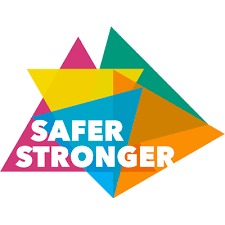Introduction
Cornwall is striving to become a truly compassionate place to live—a place where everyone feels connected, safe and understood. We want to ensure that individuals, communities and services respond to those experiencing multiple disadvantages with empathy, fostering positive outcomes for all.
Cornwall is striving to become a truly compassionate place to live—a place where everyone feels connected, safe and understood. We want to ensure that individuals, communities and services respond to those experiencing multiple disadvantages with empathy, fostering positive outcomes for all.
Our vision is that compassion drives the best approaches to engaging with and supporting people affected by trauma. By embedding trauma awareness into community life, services, and policy, we can help people across Cornwall to ‘live their best life.’
To achieve this, we are developing the Compassionate Cornwall All-Age Framework, a transformative approach that:
- Creates environments and practices that are sensitive to the needs of individuals who have experienced trauma and adversity.
- Increases workforce confidence in working with trauma-informed principles.
- Ensures earlier and more effective interventions for individuals and families impacted by adversity.
- Enhances service accessibility and ensures that interactions do not inadvertently re-traumatise people.
How You Can Contribute
As a valued member of the Trauma-Informed Network Cornwall, your insights and expertise are crucial in shaping this framework. We invite you to participate in this consultation by sharing your thoughts and experiences. Please reflect on and respond to the following key questions.
As a valued member of the Trauma-Informed Network Cornwall, your insights and expertise are crucial in shaping this framework. We invite you to participate in this consultation by sharing your thoughts and experiences. Please reflect on and respond to the following key questions.
If you would prefer to contribute through a conversation or need any support to complete this questionnaire, please contact mandy@saferstronger.com to arrange this.
Thank you for your time and commitment to making Cornwall a more compassionate place for us all.
